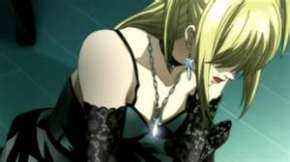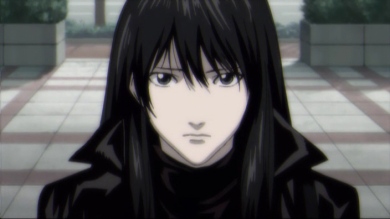Dear Screenwriting,
I hate how bad things have become between us. It was a simpler time when we fell in love. I was young and idealistic (perhaps naive is a more apt description). You were riding high on the wave of early 2000s film making.
Remember Closer? I was 15, inexperienced and desperate to learn something, anything about love and sex. And, Jesus, were you ready to teach. I still remember sitting in that theater at The Spectrum (back when it was still Edwards) with my dad and my best frenemy forever. They didn’t get it, but I did. Oh, I saw your ways– the delicious sparseness of pages upon pages of dialogue, the beauty with which you could transform a play into such a visual thing. The rawness, the emotion, the guts. I didn’t realize it then, but I fell in love that day.
You had me that year. It was no contest. It wasn’t fair. Eternal Sunshine of the Spotless Mind and Sideways. The creativity, the visuals, the clever but not too clever twists of phrase. How could I resist? How could anyone? My friends, they didn’t get you. They didn’t get us. They wanted to watch Mean Girls and Saw. Commercial shit. Not art. Not what I knew we could have.
It’s not like you worked your charms alone. You had my the unwavering support of my father. I know, you’re the one who convinced him to buy all those silly books on screenwriting. Who encouraged him to take us to that used DVD place in Newport Beach (it’s a BevMo now. My how things change). You brought out the High Fidelity in me, convincing me my taste was more important than any of my other traits as a person. (How I wanted to be Max Fischer so damn badly).
Remember our first time? It was so messy but so damn earnest. I was knee deep in depression (and calf deep in an eating disorder), desperate for any escape from those awful voices in my head. It was some Crash knock off about art and teenage angst instead of racism. It was some 60 or 70 pages, a total train wreck, but beautiful it its own way.
Film school was tough. I hated every minute of it–they weren’t giving me enough of you–but I held out until my senior year, until I finally got to fill my schedule with screenwriting classes. You pushed away all the uneasiness in my gut, that little voice that screamed at me after my friend switched his major from film to computer science. He’s right. I hate production. I hate being on set. I hate everything except being behind a computer. I don’t want a job doing this. I don’t want to be in this industry. But you drowned out that voice with your glorious white space.
It was you and me against the world, baby.
We had a bumpy patch after I graduated. I couldn’t feel my future, my progress. I was patient at first, but a year of internships and shitty jobs later, that dread crept back into my gut. I was still so naive. I grabbed every opportunity my the balls–the bizarre management company, the incompetent producer, the clueless writing group. I tried it all, considered it all, convinced myself I’d be there soon. A couple months maybe. Just a little longer.
Things really clicked when the eHow shit dried up. I spent hours with you every day (what else was I going to do?), and I fell back in love. Hell, I was addicted. I told myself I couldn’t live without you, I couldn’t accept any job that took me away from you. And I did everything I could to stay with you, even sinking to some really awful deeps (really, going on dates with men for money, pretending as if I was single. That is low).
I did it all for you. For us.
But something has changed in the last year. I see what you are. No, where you are. See, it’s not you. You’re great. You’re still perfect. But you don’t have guts the way you used to. Female characters are nothing to you. Creative storytelling is nothing to you. Independent film– it’s all on TV now.
You promised so much. But that was a different time–back when Ebert and Roper was on the air, when Hollywood Video was still in business, when I was too young and stupid to consider making ends meet. Before I realized how much I care about women getting their say. You try, sometimes, but I can tell your heart isn’t it in. You’re more at home with Nolan and Sorkin and Fincher and their dead wives and pretty blonde murder victims.
I’m sorry, but I can’t keep lying to myself. I can’t stand this damn industry. I can’t stand the incompetent people, the demands of work for free, the total lack of respect. I can’t stand this whole starving artist thing. I hate it. I always have. I want to have a job, to work 40 hours a week (instead of either 60 or 0), to feel like a functioning member of society.
Two years ago, we made a deal. I gave you until I was 25 to show me some real progress or get lost.
You’ve tried. The Nicholls placement was nice. And this new media thing. It has potential. But it’s too little, too late.
So, it’s time for us to part. I’m taking my writing elsewhere. To new adult and erotic romance novels. I know what you’re thinking–why them? Why not you? My first book made no traction. Hell, it costs me well over $1000. I could shoot a micro-budget feature. I could do the festival circut. I could try to keep this marriage alive.
But I can’t try anymore. My passion is gone. I know you can do better than these 40 year old tools who only care about MEN and their important male problems (and, God, aren’t women useless). Hell, I bet, deep down, you want to do better. But I can’t be the girl who saves you. I don’t have the patience for it.
I know. Romance is no better. Not really. Characters still need to fit inside narrow boxes. But there’s something there, something more… I have to pursue it, even if I leave it the way I left you.
At least there, I can make a product. I can be a business owner and not an aimless creative wannabe.
You won’t miss me for long. There are so many people who love you, who want you, who are begging to be with you. (And so many of them are 20 something year old tools, ready to grace your pages with shitty scripts about men, important, important men and their important male feelings. Be honest. That has always been your true love).
But, hey, we’ll always have Closer, Chasing Amy, and Sideways.
I’ll always love you, but I can’t bare to live with you for one more day.
Always,
Fiona Fire
P.S. You’re kidding yourself if you think I don’t realize all those excellent movies about about men and their important male feelings. You really don’t have room for women, do you?


